Cara Natterson's Blog, page 13
June 19, 2019
Does Sexting Lead To Sex?
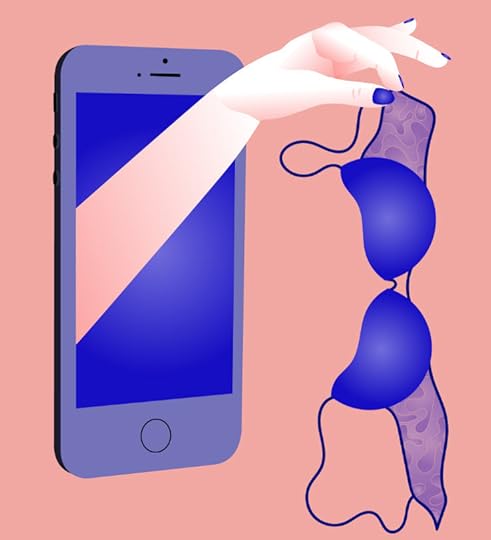
ILLUSTRATED BY: ABBIE WINTERS
Sexting means sending a sexually provocative message – often in photo or video form, though it could be words in a traditional text. And people do it. Often.
Official articles say that about 15% of all teenagers have sent sexts, and more than 25% have received them, though I think both of these stats are gross underestimations. When I teach 12- and 13-year olds in the classroom and I ask them the question How many of you know someone who has sent or received a nude (which, in case you… READ MORE
June 18, 2019
A Benefit of Bad Taste

I know, I know. I have blogged about cannabis before. But I can’t help myself, because the issue is complex. On the one hand, there’s a strong case for regulation, which seems to go hand in hand with legalization (though, let’s be honest, it doesn’t have to). On the other hand is access. And because… READ MORE
June 17, 2019
The Misnomer of Early Puberty

Paige Vickers for NPR
Early can mean lots of things to lots of people. My husband thinks that unless you arrive somewhere 10 minutes before you are expected, you are actually late; my mother, not so much. The definition of early puberty seems just as flexible.
In case you…READ MORE
May 22, 2019
The Risk of Not Taking Risks

Anyone who knows me knows that I calculate danger everywhere and all the time. Risk averse is the nice way to put it. Eye rolling and chuckling is another way to go. I can’t help it, though – I was born this way. I never wanted to bungee jump or drive a motorcycle (but give me a little credit at least because I’ll ride… READ MORE
May 21, 2019
The Lifesaving Magic Of Locking It Up
Amidst the raging national debate over gun rights and ownership, there’s a simple intervention which turns out to be downright lifesaving: if there’s a gun in the home, store it unloaded and locked up. Pediatricians have known this for decades, but we haven’t done an effective enough job of spreading the information. Maybe publicity stemming from this new study will. Researchers asked how many gun deaths from suicide and accidental homicide could be prevented with the simple steps of unloading a gun and then storing it locked away? The answer: anywhere between 6 – 32% of those deaths would actually become lives saved. And since the majority of gunshot deaths in this country are caused by suicide, that’s saying something.
The fact is that at least 13 million US households have both children and guns. And under those roofs, more than 20% of firearms are stored both loaded and unlocked, and another 50% either loaded or unlocked. Other studies have documented that even though parents often think their kids don’t know where guns are kept, three quarters of all kids know exactly where to find them. Regardless of where you stand on the gun debate, it’s common sense that the only safe way to keep a gun in a home is to have it locked away and not just unloaded, but nowhere near the ammunition (which should be locked away as well).
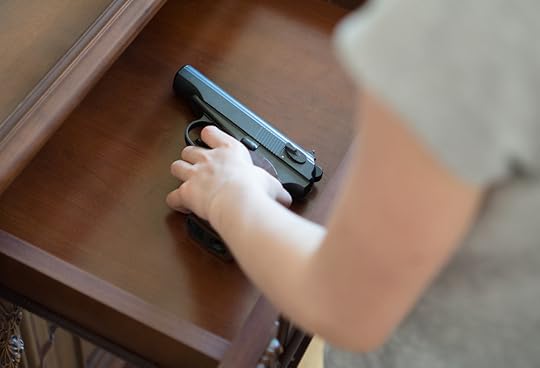
Legislators and gun safety advocates often focus on how guns are purchased. But many lives could be saved, especially among children, if they looked more at how they are stored. In the last decade, guns killed more than 14,000 American children. A startling number of those deaths—more than a third—were classified as suicides, and around 6 percent as accidents. READ MORE
A Novel Kind of Dr. App-ointment
It took me years to be able to look inside a kid’s ear, see fluid behind the ear drum, and determine whether bacteria might be growing back there. What sounds like an easy task, at least after years of medical school and training, often is not: ear canals can be packed with wax, making it impossible to see the drum, or they can belong to squirmy kids whipping their heads back and forth while the pediatrician tries, ever so gently, to sneak a peek. Even when the ear drum is easy to see, it’s not always completely obvious which infections need treating and which do not.
All of this explains my skepticism about an app that uses the phone plus a homemade paper funnel to replace the pediatrician’s exam. Now don’t get me wrong, I am all in favor of just about anything that save parents an unnecessary visit to the doctor’s office. The cost of that visit – not just to fee but the cost in lost work time and aggravation – is money well-saved. But I sure do hope the app comes with some parental education, if not a list of warnings. The more medicine is outsourced to parents at home, the higher the likelihood that parents don’t make the right diagnosis. And I fear the guilt of a missed illness, not to mention the bigger downstream complications.
That said, if it really works, this app will be awesome… even for doctors.
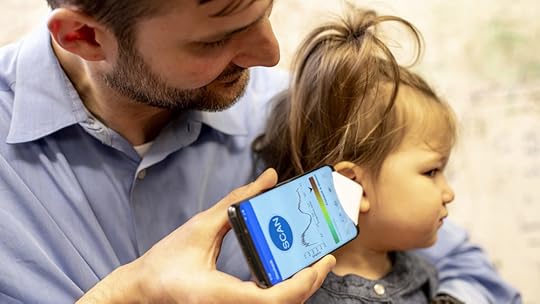
Middle ear infections, which are detected by fluid buildup in the ear canal, are the most common reason for pediatric visits. Some 2 million kids every year have these infections, but beyond signs of discomfort or sometimes a fever, it’s hard to know at home what may be happening. And left unattended, such infections could cause serious complications, including hearing loss and meningitis. A general… READ MORE
Period. Start of Podcast.
This past winter, NPR held a podcasting contest, where they invited 5th – 12th graders from across the country to create original submissions about just about anything. The middle school winner, Sssh! Periods! is pure perfection. These girls tackle big issues as they relate to periods, like homelessness and income inequality. They also take on local stigmatization. In their own school, the subject of periods is so taboo that school officials have even taken to giving supplies such as pads and tampons a code name: marshmallows. Can you imagine the guts it took for these girls to talk openly – on a podcast, no less – about a topic that teachers and administrators won’t even acknowledge? A topic, by the way, that most of these adults contend with every month? Bravo, girls! And NPR, too, for recognizing their story.
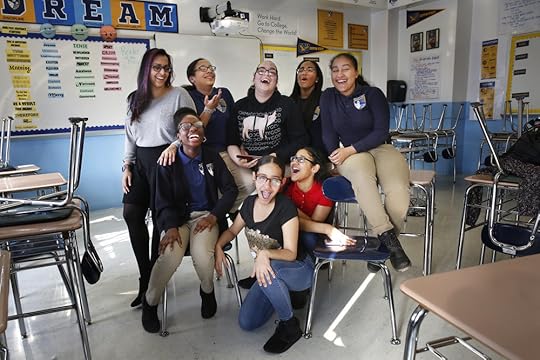
In the second-floor girls' restroom at Bronx Prep Middle School in New York, there's a sign taped to the back of the toilet stall doors. It's a guide on how to "properly dispose feminine products." On the list? "Make sure that no one views or handles product." "It's not even saying the word pad. It just says product! explains Kathaleen Restitullo, 13. "Just, like, don't let anyone see that you are on your period."But Kathaleen and six of her… READ MORE
A Startup's Start Up

Brian Weisfeld has been building businesses his entire life. In elementary school, he bought ninety-five pounds of gummy bears and hired his friends to sell them. As a teen, he made and sold mixtapes (remember those?), sorted baseball cards (he got paid in cards), babysat four days… READ MORE
May 2, 2019
How Strict Should Parents be with Teens
Posted By: Maggie Tancred - The Mother Company

From the moment we become responsible for raising a child we begin a never ending balancing act between being too over protective or too lenient with our children. Both extremes are not ideal so we look for the middle ground. With teenagers this struggle becomes very real when we worry about what they’re doing when we’re not around. We have to let go but we also feel such a deep urge to hold tight and keep them safe. In search of finding this balance, we checked in with best selling author, pediatrician and parenting consultant, Dr. Cara Natterson for some helpful advice on how to handle teenagers, specifically when it comes to their monitoring their exposure to drugs and alcohol. READ MORE
April 23, 2019
Resetting Clocks and School Start Times
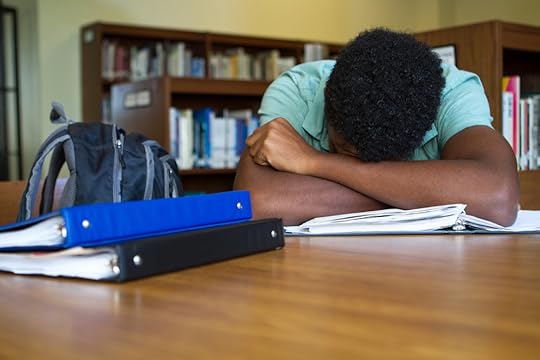
At the moment, there are two ongoing debates over how we allocate our daylight time. And both of them might just help our kids get more sleep at night.
The first is a push to make Daylight Savings Time happen all the time. By getting rid of twice-yearly time shifts… READ MORE



